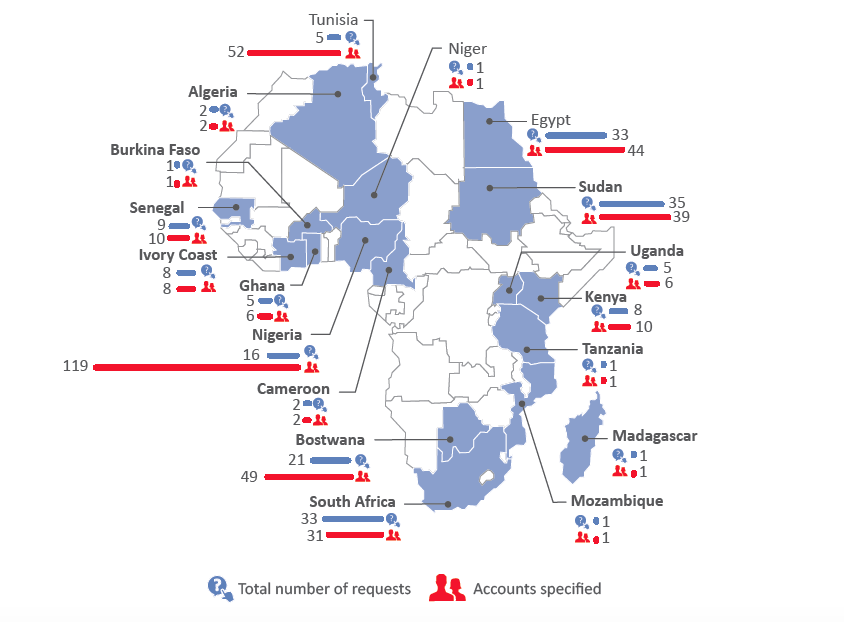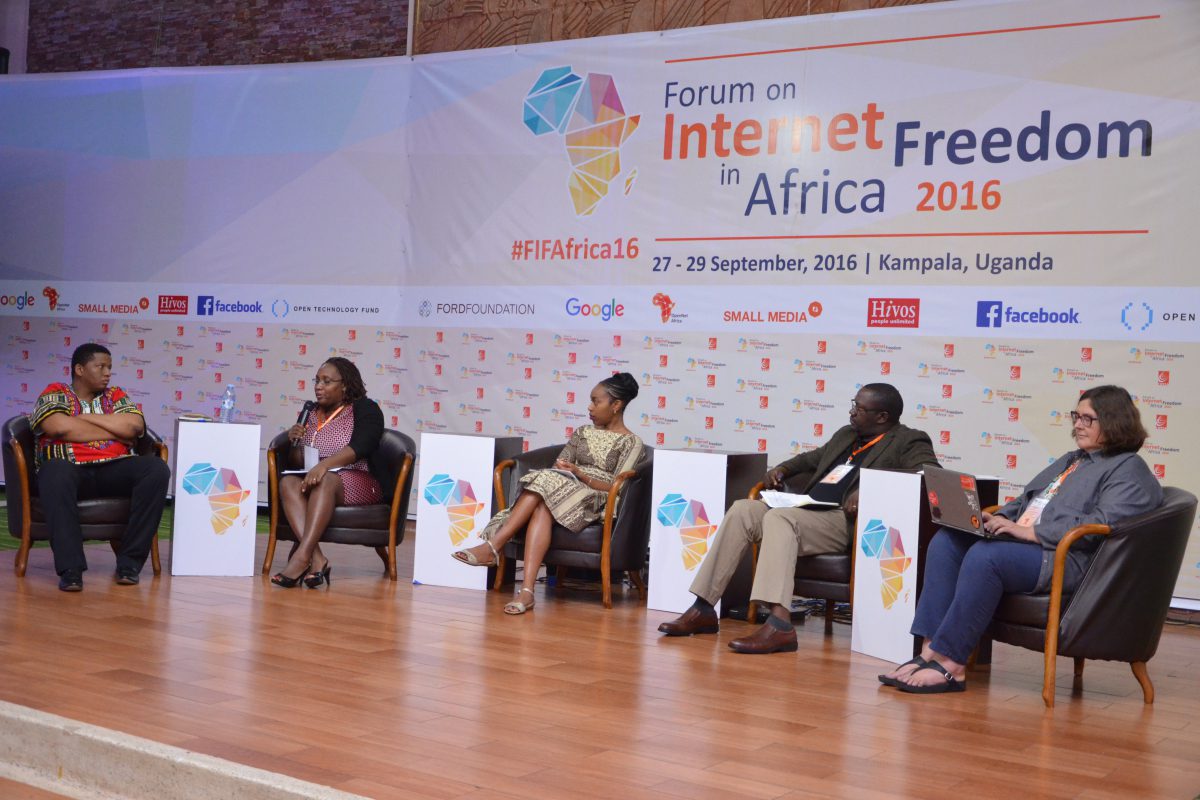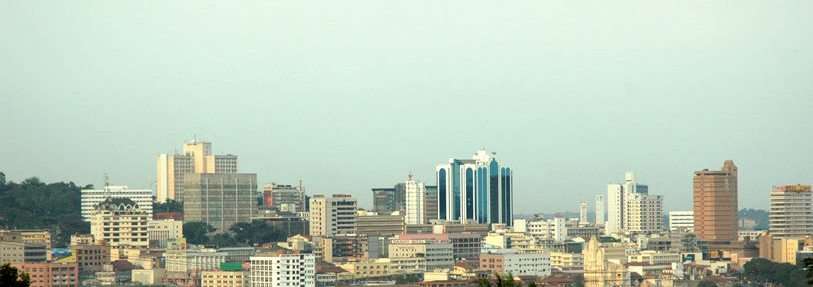Policy Brief |
The relationship between communications service providers, users and governments with regards to data protection, requests of user information and content take downs is increasingly taking centre stage in discussions around free, open and secure use of digital technologies.
In February 2017, Millicom issued its second Law Enforcement Disclosure Report. Millicom’s report is one of many by private companies aimed at promoting transparency and accountability, through periodically publishing reports detailing information on government requests for user data, content removals, and compliance with those requests.
Google is credited with being the first internet company to publish a transparency report back in 2009, followed by Twitter in 2012. Facebook and Yahoo have published reports since 2013. Vodafone and Orange were among the first telecommunications companies to publish transparency reports, both in 2014.
These reports have become vital to understanding censorship, surveillance and more importantly the commitment of service providers to protecting the privacy of their users and promoting freedom of expression online. Based on the reports alone, it remains unclear what the true extent of governments’ surveillance of citizens’ communications and censorship of content across the world is. Nonetheless, the reports indicate a growing trend among countries, including African governments, of requests for subscribers’ data and content removal.
On the social media front, from five African countries being listed by Facebook among those that requested users’ details in the first half of 2013, the number on the continent has grown to 18 as at the end of 2016. Meanwhile, requests to remove content from Google have also grown from only Libya in 2010 and 2011, to four African countries in 2016 alone. Twitter, which only received one user information request from South Sudan in 2012, has since gone on to receive requests from an additional four countries on the continent. The countries which have consistently made requests for user information to Google, Facebook and Twitter include South Africa, Nigeria, Sudan, Kenya and Egypt.
In telecommunications, figures are scanty as only four companies operating in Africa issue transparency reports – one of which, MTN, does not disclose any statistics while Vodafone’s extent of disclosure is limited due to legal provisions in some of its countries of operation that prohibit publishing of such information. Even then, user data requests from five African governments to Millicom have increased from 5,000 in 2015 to nearly 7,000 in 2016. Requests to Orange from the 20 African countries where it had operations as at the end of 2016 have tripled in the past three years – from 22,930 in 2014 to 67,718 in 2016.
In this brief, we provide a summary of the user data and content removal requests which governments in Africa have made to select internet and telecommunications companies in recent years.
18 NGOs File an Intervention Before France’s Highest Court on Dangers of The ‘Right to Be Forgotten’
News Update|
Today, 18 expert non-governmental organisations from across the world have filed legal submissions before France’s highest court, the Council of State (Conseil d’État), raising serious concerns about a ruling of France’s data protection authority, la Commission nationale informatique et libertés (“CNIL”), on the “right to be forgotten”.
In 2014, CNIL ordered Google to remove 21 links from the results of an internet search on the name of a French citizen who claims a “right to be forgotten.” Google initially removed the links from its French search site (www.google.fr) and other European search sites (such as www.google.ie), but CNIL demanded it go further. Google then blocked the links from results returned to European users, even when using Google’s non-European sites, including www.google.com.
CNIL however demands that when it orders content to be “forgotten” from search results, this decision must be given effect worldwide, meaning that the results must be made unavailable to all users internationally, regardless of where they are accessing internet search engines. CNIL has also imposed a huge fine on Google, of €100,000.
Read more about it here.
Should Internet-based Firms Explain Terms and Conditions to Users?
By Kofi Yeboah|
There are many users of internet based platforms, like Facebook and Google, who are unaware of the existence of the terms and conditions that are available on the platform websites for users to familiarise themselves with and understand. The terms and conditions outline what is expected of both parties in agreement and also what both parties can and cannot do including with private data. Whose responsibility is it to popularise these often long policies to users?
This question was one of the most debated and discussed at the just ended Forum on Internet Freedom in Africa 2016 (FIFAfrica16) which was organised by the Collaboration on International ICT Policy for East and Southern Africa (CIPESA). Sharing of user data by internet based firms, either upon request by particular governments or other entities has become one of the most worrying factors for many internet users. Users of social media platforms do not entirely have control over who has access to their data, neither do they always have an understanding of the privacy policy associated with using these platforms.
As part of the panel discussion on transparency and accountability of intermediaries at#FIFAfrica16, Ebele Okobi, Head of Public Policy, Africa, Facebook, stated that “terms of service are the main mechanism used by companies to communicate with customers. Read them”. In other words, it is the responsibility of the user to read and understand what the terms of service say. However, most users do not read the terms of service “before clicking accept” and as pointed out by Anriette Esterhuysen of the Association for Progressive Communications (APC), firms hide behind that user ignorance to achieve their strategic goals at the detriment of user privacy.
Do Terms of Service Govern the Relationship?
“Terms of services do not govern the relationship between users and the company,” noted Ms. Okobi. She added that terms of service are the mechanism by which companies communicate with their users on the product. This implies that a firm can take an action that will affect a user with or without his/her permission.
What can be done?
Terms of services need to be in clear language and displayed boldly for users to read and understand. Internet-based firms should also consciously create awareness about the importance of reading the terms of services and also interpreting them to users. The firms should take the first step in explaining to users what the terms of services actually mean and what are they agreeing to for using the products. Terms of service should be simplified for users to understand the risks involved in signing up onto a platform and also outline how their data will be collected and used.
Meanwhile, users need to understand the rights they are giving up to internet-based firms when they check the “I agree” box on terms of service. On an ongoing basis, companies need to communicate with users to help understand why they need to collect their information and assure them the data being collected will be secured and not shared with third parties without their consent.
This article was first published at kofiyeboah.com on October 10, 2016.
Google Launches Wifi Project to Ramp up Broadband Access in Kampala
By Ashnah Kalemera |
Two years since launching a project to provide high quality broadband through shared fibre infrastructure in Uganda, Google has now officially launched the WiFi based Project Link in the Ugandan capital, Kampala.
The internet giant has set up WiFi radios and supporting infrastructure at 120 locations within the city to provide citizens and small media businesses (SMEs) with high speed, affordable and reliable internet services “on the go” and at home.
The initiative aims to help local providers access high-capacity networks at a lower cost due to the opportunity to share infrastructure rather than construct their own. In partnership with the Kampala City Council Authority (KCCA) and property services companies among others, Project Link WiFi services are available at shopping malls, sports grounds, apartment complexes and office blocks.
“Google built the network and access points. We operate and monitor it,” said Ela Beres, a Google official. The ISPs and MNOs participating in the project are responsible for the quality of service, determining pricing and providing support to end users.
As at June 2015, Uganda had 36 licensed public service providers for voice and data services. Internet penetration stood at 37% and telephone penetration at 64%. In 2014, the country was ranked 15 out of 51 countries surveyed in the global internet affordability index. The index measures the affordability of internet access in each country as influenced by the extent of infrastructure deployment, adoption rates and existing policy and legislative frameworks.
According to Suzan Kitariko, Google Uganda Country Manager, since its launch in November 2013, Project Link has seen the laying of 800 kms of broadband fibre in Kampala and the surrounding areas of Entebbe and Mukono. This has enabled 13 local ISPs and mobile network operators to provide high quality broadband to an estimated two million people.
“Google Infrastructure has allowed us to focus on our core competences and cut on capital expenditure, thus reducing costs to benefit the consumer,” said Roger Sekaziga of Roke Telkom, one of the project’s partners. Roke Telkom has deployed unlimited Wifi spots at select restaurants and bars at speeds of up to 1mbs for UGX 18,000 (US$ 5) per month or UGX 1,000 (US$ 0.30) per day.
Speaking at the launch which was held at the Protea Hotel on December 3, Uganda’s Minister of Information and Communication Technology (ICT) John Nasasira said improved access to reliable and affordable broadband connectivity had the potential to positively impact Uganda’s health, education, agriculture and business sectors. He added that it would also contribute to government-citizen engagement. Nasasira called for more public-private partnerships in telecommunications infrastructure development to “boost uptake and narrow the digital divide in the country.”
Meanwhile, leveraging on Project Link, panoramic views of tourist and leisure sites in Kampala are now available via Street View. Work is underway to extend coverage to national parks. Project Link is also supporting the regulator, Uganda Telecommunications Commission and KCCA to draft guidelines for infrastructure sharing for all licensed operators.
Over the coming months, Project Link is expected to expand WiFi access to 300 other locations across the country. Since launching its first metro-fibre network in Kampala in 2013, Project Link has expanded to Ghana in West Africa, where it expects to build 1,000 kms of metro fibre.




